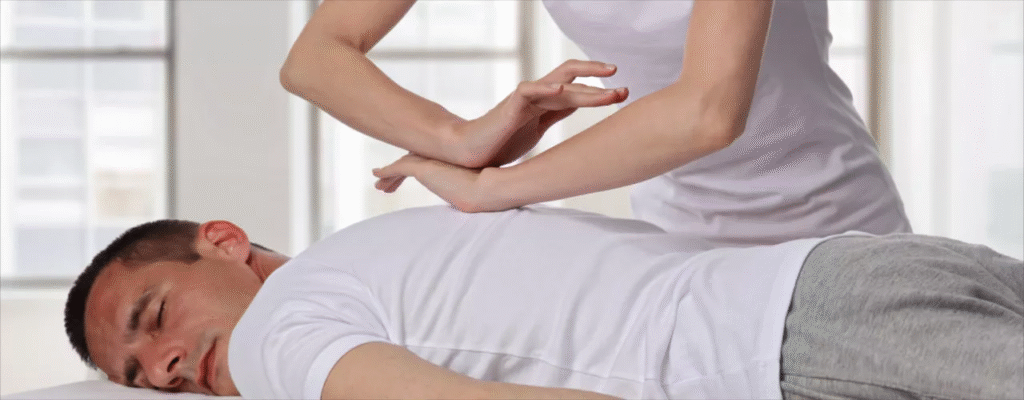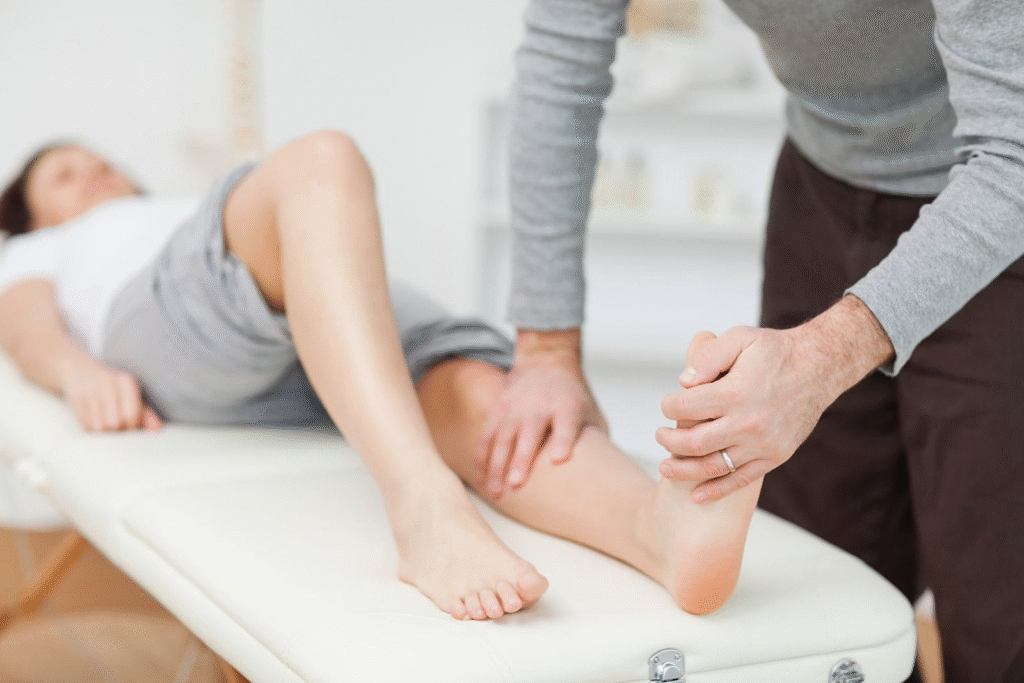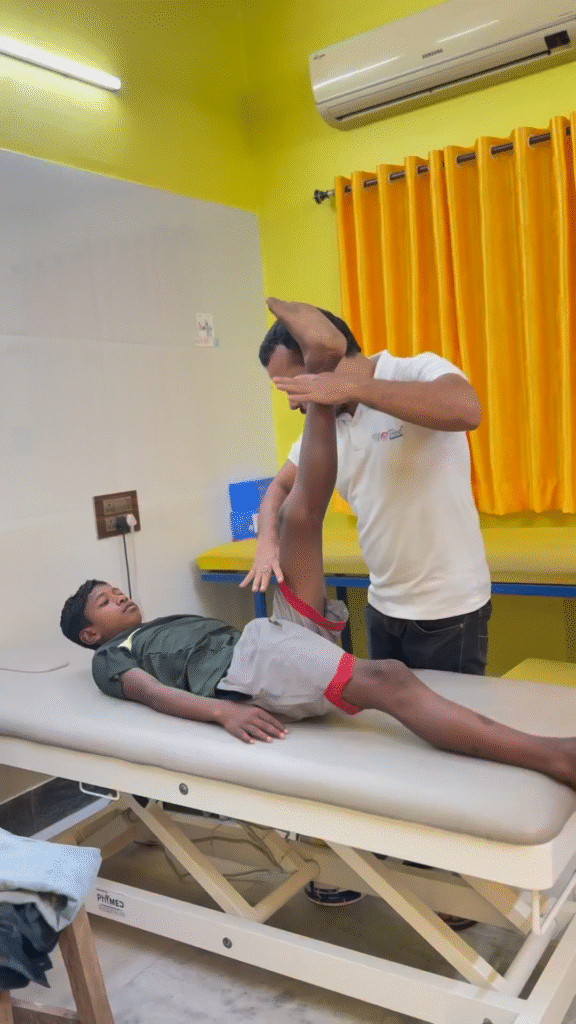How Physiotherapy Can Help Reduce Anxiety and Improve Mood
Move Better, Feel Better: Inside and Out
Anxiety affects millions around the world, making it one of the most common yet misunderstood mental health conditions. From excessive worrying and racing thoughts to muscle tension and poor sleep, anxiety shows up in both the mind and body.
Whether it’s generalized anxiety, panic attacks, or social anxiety, the effects can be overwhelming, disrupting your daily life, relationships, and physical health. But here’s something many don’t realize:
Physiotherapy can help manage anxiety by treating both physical symptoms and promoting emotional balance.

The Mind-Body Connection: How Anxiety Affects Physical Health
Anxiety doesn’t live only in your thoughts, it shows up in your muscles, breathing, posture, and sleep. When your body is in a constant “fight or flight” mode, it leads to:
- Muscle tightness in the neck, back, and shoulders
- Rapid breathing or shallow breathing
- Increased heart rate
- Poor digestion and fatigue
- Tension headaches and sleep problems
This physical stress can create a vicious cycle, where your anxiety causes discomfort, and that discomfort increases your anxiety. That’s where physiotherapy steps in to break the cycle.

How Physiotherapy Helps Reduce Anxiety and Improve Mood
Physiotherapy isn’t just for injuries or post-surgery care. It includes movement therapy, breathing techniques, posture correction, and relaxation practices that directly benefit your mental health. Here’s how:

1. Exercise – A Natural Mood Booster
Exercise is medicine, especially for the mind. Physiotherapists guide you through customized exercises that release:
- Endorphins (your body’s natural painkillers)
- Serotonin and dopamine (key mood-regulating neurotransmitters)
Regular physical activity also:
- Improves sleep
- Reduces stress hormones like cortisol
- Boosts confidence and self-esteem
And unlike a gym session, these exercises are tailored to your fitness level and mental health needs.

2. Breathing Techniques for Instant Calm
Diaphragmatic breathing and paced breathing are powerful tools taught in physiotherapy to calm your nervous system. These techniques:
- Lower your heart rate
- Reduce muscle tension
- Activate the parasympathetic (relaxation) response
- Help you stay grounded during moments of panic or anxiety

3. Progressive Muscle Relaxation (PMR)
This involves tensing and releasing different muscle groups, helping you recognize and release physical stress stored in the body.
Benefits include:
- Releasing tension in high-stress areas like the shoulders, jaw, and back
- Creating mind-body awareness
- Promoting deep relaxation and better sleep
4. Posture Correction – Your Body Language Matters
Did you know slouching can worsen your mood? Poor posture can increase physical pain and lead to low confidence. Physiotherapists guide you in:
- Improving spinal alignment
- Reducing postural stress
- Promoting an uplifted posture that improves both comfort and mood
5. Massage Therapy – Release Tension, Release Anxiety
Therapeutic massage offered by physiotherapists helps:
- Reduce muscle stiffness
- Stimulate the parasympathetic nervous system
- Improve blood circulation
- Promote mental calmness and emotional stability
It’s not just relaxing, it’s scientifically backed to reduce cortisol (stress hormone) levels and increase serotonin and dopamine.

The Physiotherapy Intervention
1. Manual Therapy and Soft Tissue Mobilization
Myofascial release and manual therapy techniques are used to decrease muscle tension and fascial restrictions. By applying targeted pressure to trigger points and hypertonic muscle groups, we can reduce nociceptive input to the central nervous system. This desensitization can help to modulate the nervous system and promote a state of relaxation.
2. Breathing Retraining and Respiratory Muscle Control
Physiotherapists teach patients to re-establish diaphragmatic breathing. This technique involves controlled, deep inhalations that expand the abdomen, thereby stimulating the vagus nerve. The vagus nerve is a key component of the parasympathetic nervous system, and its stimulation can:
- Reduce heart rate variability.
- Lower cortisol levels.
- Promote a state of rest and digestion.
Correcting dysfunctional breathing patterns not only reduces anxiety symptoms but also improves oxygen exchange and reduces the physical sensation of breathlessness.
3. Graded Exposure and Therapeutic Exercise
Therapeutic exercise, including mindful movement practices like yoga and tai chi, can be a powerful tool for self-regulation. By focusing on proprioception and interoception—the awareness of one’s body and internal state—patients can develop a greater sense of control and present-moment awareness. The physiological benefits of regular exercise, such as the release of endorphins, also contribute to mood regulation and a reduction in perceived stress.
4. Sleep Hygiene and Pain Management
Chronic pain and anxiety are often co-morbid. A physiotherapist can identify and treat musculoskeletal pain that may be disrupting sleep, a critical component of mental health. By improving physical comfort and teaching relaxation techniques, we can help patients achieve more restorative sleep.

Long-Term Benefits of Physiotherapy for Anxiety
Physiotherapy offers more than short-term relief—it builds lasting resilience.
Key Long-Term Benefits:
- Reduced dependency on medications (when guided by your physician)
- Improved physical health (flexibility, strength, cardiovascular fitness)
- Better sleep quality and relaxation response
- Higher self-awareness about your anxiety triggers and body signals
- A holistic approach to managing both physical and emotional stress
FAQs – Physiotherapy & Anxiety
Q1: Can physiotherapy really reduce anxiety?
Yes! Physiotherapy uses proven techniques like breathing, movement, and massage that directly reduce anxiety symptoms and improve mood.
Q2: Which exercises are best for anxiety?
Breathing drills, gentle cardio, stretching, progressive muscle relaxation, and posture-focused routines, all designed based on individual needs.
Q3: How soon can I expect results?
Some experience relief in just a few sessions. However, consistent treatment over weeks ensures more lasting and noticeable improvements.
Q4: Can physiotherapy replace medications for anxiety?
It can be a powerful complement. Many people reduce their reliance on meds with professional advice, but always consult your mental health provider first.
Start Your Healing Journey with FitoFine
At FitoFine Physiotherapy, we believe in treating the whole you: mind, body, and spirit. If anxiety has been weighing you down, our expert physiotherapists are here to guide you with personalized programs that bring relief, relaxation, and renewed confidence.
Book Your Session Today
FitoFine Physiotherapy Clinic
Hours:
Mon – Sat: 5:00 PM – 10:00 PM
Sun: Closed
Email: fitofine.in@gmail.com
Website: www.fitofine.com
Phone/WhatsApp: +91 6295115701
FitoFine: Helping You Live a Life Free from Anxiety and Stress!


